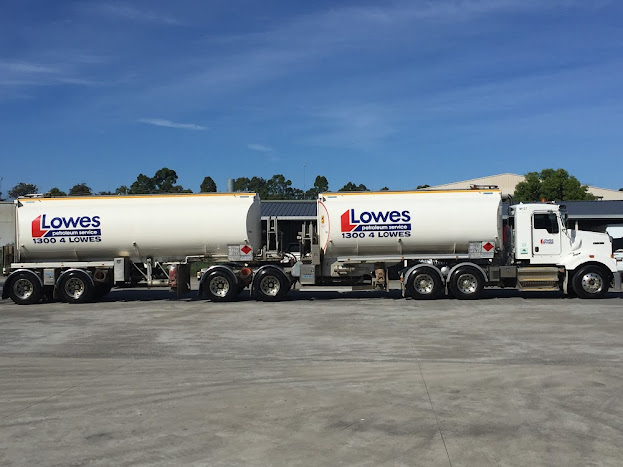We recently caught up with Jake Myler, Head of Fleet and Compliance at Lowes Petroleum, to hear how the bulk fuel carrier has been tracking through recent events and thinking about advances in fleet technology.
Can you tell us a little about your background in the road transport industry and your career path to your current position?
I have been involved in the transport industry since I began my working career over 15 years ago. Beginning in the steel recycling industry and now petroleum, I have held positions from scheduling, operations management, logistics analytics and currently Head of Fleet & Compliance.
As Head of Fleet and Compliance at Lowes Petroleum what are your primary responsibilities?
To ensure efficient and safe operations of our fleet of heavy vehicles. This includes purchasing fit for purpose assets, ensuring company and regulatory compliance, and overseeing logistics efficiency & strategy.
Has your business been impacted by the uncertainty and impediments to internal trade since the pandemic hit Australia in March 2020 and if so, how?
As a business we are more weighted to commercial & agriculture fuel sales so we have not been impacted as much. Although some internal logistics parcels are more reliant on retail service stations which did see a decline in demand, at the same period we saw demand increase during harvests in areas like central west NSW.
Has this affected you or your role personally, and have you had to change the way you work over this time?
The biggest challenge currently is dealing with lead times for new builds for both truck & trailers. What previously was around 16 weeks from order we are now waiting around 10-12 months to receive new vehicles. We have had to review our annual fleet replacement needs much earlier than usual to ensure we are replacing fleet in a timely manner.
The amount of technology used in modern heavy-haul vehicles has increased dramatically over the last few years, how have you/your business utilised these advances and have they delivered the benefits you expected?
Fleet Telematics has definitely been one of the better sources of data for our business over the last few years, particularly when it comes to understanding fleet performance. We have been able to develop a number of key metrics from the data collected and with the help of our BI tool it has made it easier to share with the wider business to create awareness and drive continuous improvement.
What technologies are you most excited about right now, that you expect to have a significant impact in the reasonably near future?
Looking at it from a safety perspective I’m really glad to see all of the truck brands we purchase offer the latest in safety technologies, including adaptive cruise, emergency braking and lane departure warning systems. Our drivers are faced with a number of challenges out on the road and its technology like this which makes it safer for them and other road users.
Do you see advances in technology changing employment opportunities in the transport industry in the future and if so how?
I think there is a growing need for good analysts in the transport & logistics industry. We are gathering more data than ever before which is great but the greatest challenge is being able to firstly understand what it means and then educating the wider business in effort to improve performance.
More technology means more data and there isn’t much that can’t be measured today but not everything has the same operational value, is there any data that isn’t currently available, or very hard to get, that you think would make a large difference to your operations?
For me it’s about robust data and tools. Some of what we currently measure does require manual intervention typically by our drivers, if they forget or worse the tablet in the vehicle is not working it can start to make our metrics very inaccurate.
Is there anything you think the industry should be focussed on as a priority that isn’t receiving enough attention?
Entry of new drivers into our workforce. It is no secret we have an ageing workforce when it comes to drivers. This shortage means it’s a constant battle to keep our trucks moving and well utilised. The freight task in Australia is not getting any smaller and we as a business are looking at strategies to improve driver attraction and retention but I think the industry needs to do more on a whole to promote truck driving as a viable career path.
What advice, in terms of skills development, gaining experience or areas of focus, would you give to someone entering the industry today?
Referring to my comments around needing more analysts, my advice to any perspective employee would be first take a roll in operations to gain the deeper understanding needed to make sense of the data. Creating metrics around different levels of performance is great but the key is understanding the operational drivers around those numbers to create or suggest meaningful change.
Thanks Jake, for some great insight into the operations of a modern fleet business and the view forward!

Comments
Post a Comment